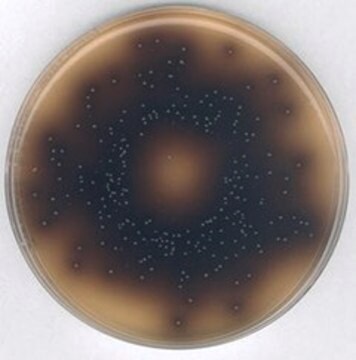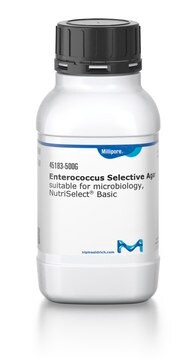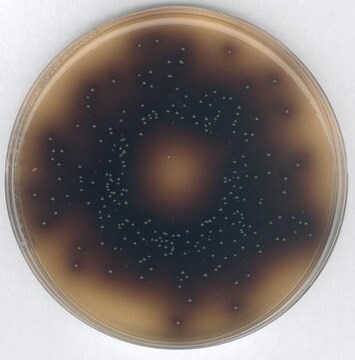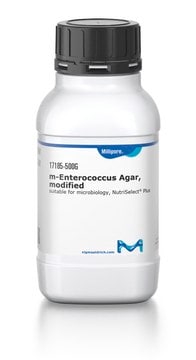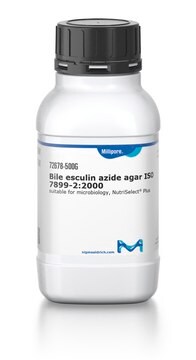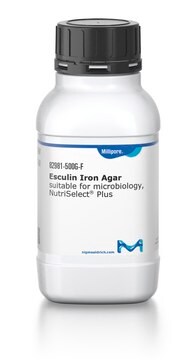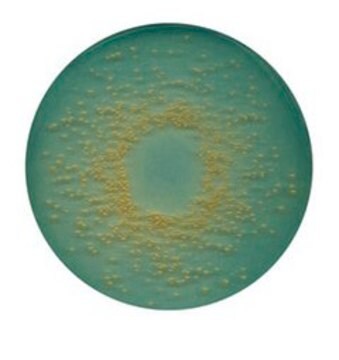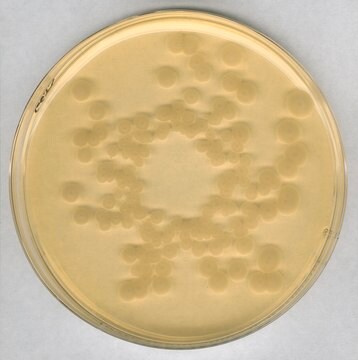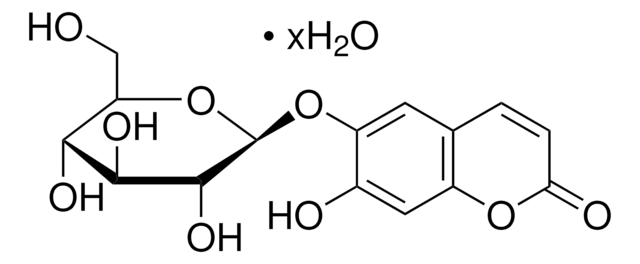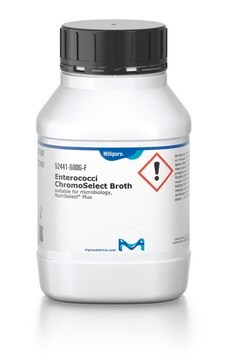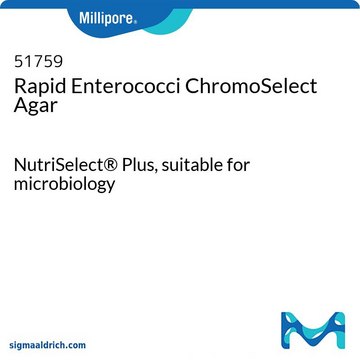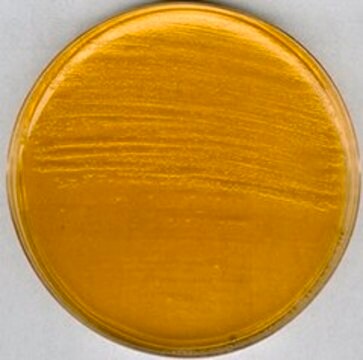48300
Galle-Esculin-Agar
suitable for microbiology, NutriSelect® Plus
Synonym(e):
Aesculin-Galle Agar, B.B.E. Agar, Bacteroides Galle-Esculin-Agar
About This Item
Empfohlene Produkte
Agentur
according to ISO 10273:2017
Qualitätsniveau
Sterilität
non-sterile
Produktlinie
BioChemika
Form
powder
Haltbarkeit
limited shelf life, expiry date on the label
Zusammensetzung
agar, 15.0 g/L
esculin, 1 g/L
ferric citrate, 0.5 g/L
meat extract, 3 g/L
meat peptone, 5 g/L
ox-bile, 40 g/L
Hersteller/Markenname
NutriSelect® Plus
Methode(n)
microbe id | specific enzyme detection: suitable
pH-Endwert
6.6±0.2 (25 °C)
Anwendung(en)
environmental
food and beverages
water monitoring
microbiology
Eignung
Streptococcus spp.
selective and differential for Enterococcus spp.
Anwendung
Angaben zur Herstellung
Fußnote
The designations basic, plus, or prime are added to indicate the quality control level, from basic quality control to standard QC plus to prime for full regulatory compliance.
Rechtliche Hinweise
Lagerklassenschlüssel
11 - Combustible Solids
WGK
WGK 3
Flammpunkt (°F)
Not applicable
Flammpunkt (°C)
Not applicable
Hier finden Sie alle aktuellen Versionen:
Besitzen Sie dieses Produkt bereits?
In der Dokumentenbibliothek finden Sie die Dokumentation zu den Produkten, die Sie kürzlich erworben haben.
Kunden haben sich ebenfalls angesehen
Artikel
Microbiological assessment of bacteria found in spices, a potent source for food spoilage and pathogens.
Unser Team von Wissenschaftlern verfügt über Erfahrung in allen Forschungsbereichen einschließlich Life Science, Materialwissenschaften, chemischer Synthese, Chromatographie, Analytik und vielen mehr..
Setzen Sie sich mit dem technischen Dienst in Verbindung.